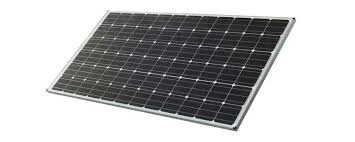Designing Efficient Off-Grid Solar Inverters for Sustainable Energy Solutions
Designing Off-Grid Solar Inverters A Comprehensive Guide
As the world moves toward sustainable energy solutions, off-grid solar systems have gained significant traction among homeowners and businesses seeking independence from conventional power sources. One of the most crucial components of these systems is the solar inverter, which plays a pivotal role in converting the solar energy captured by photovoltaic (PV) panels into usable electricity. In this article, we will delve into the key considerations and elements involved in designing an efficient off-grid solar inverter.
Understanding Off-Grid Systems
An off-grid solar system is designed to operate independently of the main power grid. This setup is particularly advantageous in remote locations where grid access is limited or nonexistent. Off-grid systems typically consist of solar panels, batteries for energy storage, and an inverter to manage energy conversion and supply. Designing an effective inverter for these systems requires an understanding of the unique requirements of off-grid living, including the need for reliable performance and the ability to handle variable loads.
Key Design Considerations
1. Power Capacity The first step in designing an off-grid solar inverter is to determine the power requirements of the intended load. This involves calculating the total wattage of all devices that will be powered by the system. The inverter must be able to handle peak loads, which may differ from the average energy consumption. As a general rule, designers often recommend an inverter capacity that exceeds the peak load by at least 20-30% to ensure reliability and longevity.
2. Voltage Compatibility Off-grid systems can operate at varying voltage levels, including 12V, 24V, or 48V, depending on the application and battery configuration. It is essential to ensure that the inverter is compatible with the chosen battery system to facilitate efficient energy transfer and minimize energy loss.
off grid solar inverter design

3. Inverter Type There are mainly two types of inverters used in off-grid applications pure sine wave inverters and modified sine wave inverters. Pure sine wave inverters produce a clean, smooth waveform that is suitable for sensitive electronics and appliances, while modified sine wave inverters are less expensive but may not be suitable for all devices. Therefore, choosing the right type of inverter is crucial based on the electronics’ sensitivity that will be powered.
4. Efficiency Inverter efficiency is another critical aspect to consider. High-efficiency inverters can convert a higher percentage of DC power from the solar panels into AC power for household use, reducing energy waste. Look for inverters with efficiency ratings of 90% or higher to ensure optimal performance.
5. Integrated Features Modern off-grid solar inverters often come equipped with features designed to enhance usability and functionality. These may include built-in battery management systems, charge controllers, and monitoring capabilities that allow users to track energy production and consumption in real-time. Such features can be invaluable for optimizing energy use and extending battery life.
Safety and Compliance
Safety must always be a priority in any electrical design, especially in off-grid systems where the risk of failure can have serious repercussions. Inverters should include essential safety features such as overload protection, short circuit protection, and temperature control to prevent damage to the system or connected devices. Additionally, compliance with local or international electrical standards is crucial for both safety and legal purposes.
Conclusion
Designing an off-grid solar inverter requires careful planning and consideration of various factors including power capacity, voltage compatibility, inverter type, efficiency, and safety features. As more individuals and businesses seek sustainable energy solutions, the significance of well-designed off-grid systems will continue to grow. By focusing on these key aspects, designers and engineers can create reliable, efficient, and safe off-grid solar inverters that empower users with energy independence and contribute to a more sustainable future.
-
String Solar Inverter: The High-Efficiency Solution for Smart Solar EnergyNewsJul.14,2025
-
Revolutionizing Rooftop Energy with the Power of the Micro Solar InverterNewsJul.14,2025
-
Power Independence with Smart Off Grid Solar Inverter SolutionsNewsJul.14,2025
-
On Grid Solar Inverter: Powering the Future with Smart Grid IntegrationNewsJul.14,2025
-
Monocrystalline Solar Panels: High-Efficiency Power for the Future of Clean EnergyNewsJul.14,2025
-
Bifacial Solar Panel: A Smarter Investment for Next-Generation Energy SystemsNewsJul.14,2025







